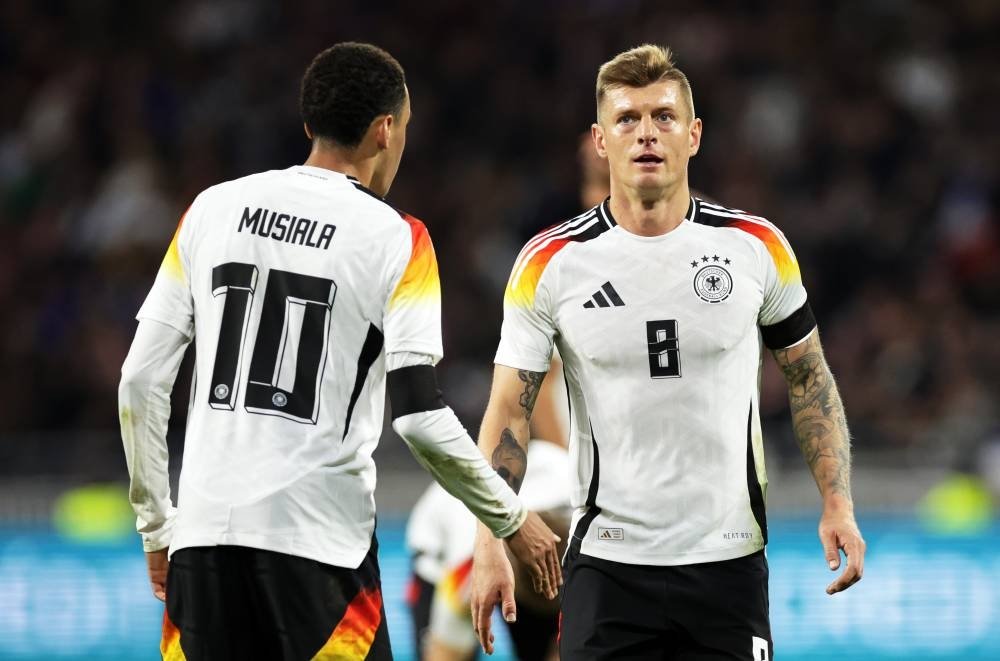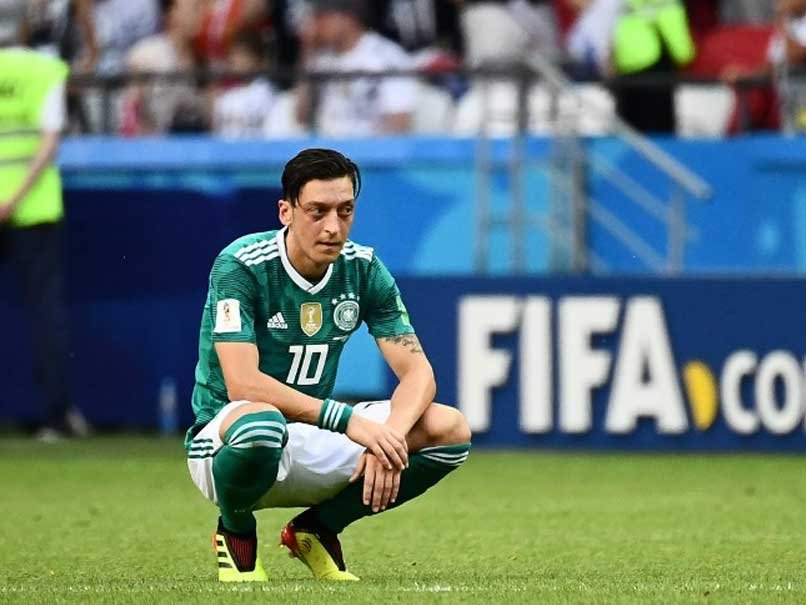How Toni Kroos' Comments On Immigration Miss The Target
Toni Kroos will be remembered as one of the greatest midfielders of all time. Known for his metronomic yet expansive passing game, he helped define this era of football.
However, the retired midfielder, himself a beneficiary of immigration, showed a different side to himself recently when he spoke on the Lanz & Precht podcast, stating that Germany’s level of immigration has been “too uncontrolled,” leading to a “loss of control” in Germany.
He elaborated: “I believe that this control over certain issues has simply slipped away a little over the years and there’s a reason for that. In my opinion, the reason is that people have overwhelmed them.”
He also added: “I think we didn’t manage it, this basically very positive approach that I support 1000 per cent, because I find that sensational, that people come to us from the outside and then are happy.”
In addition to his concerns about immigration in his homeland, which he left 10 years ago to join Real Madrid, he stated that he feared for the safety of his 7-year-old daughter if she were to come home late from a night out. He believes he “wouldn’t have had that 10 years ago”.
Putting aside the irony of the German emigrant’s negative perception of immigration in Germany, these comments come at a time where the far-right party Alternative for Germany (AfD) finished second with 16% of the vote in last month’s European elections, the same elections which saw Emmanuel Macron feel the need to call a snap election, such was the success of France’s far-right National Rally party, led by Marine Le Pen. While France’s Marcus Thuram and Kylian Mbappé positioned themselves as staunch opponents of Le Pen’s racist rhetoric, which blames immigration for many of France’s perceived woes, Kroos sees things differently.
To add context on how these issues have impacted Germany’s ethnically diverse squad, on the eve of Euro 2024 vice-captain Joshua Kimmich publicly condemned a recent survey by public broadcaster ARD. The survey asked whether Germans would prefer more white players in the team, with 21% of the 1,304 randomly selected participants answering yes. Kimmich called the survey “absolutely racist.”
Kroos (right), pictured with Germany teammate Jamal Musiala (left). 21% of respondents to ARD’s survey would prefer there were less players that looked like Musiala in the team
At a time where Europe is leaning ever further rightward, a time when even Reform UK receive 14.3% of the popular vote in the recent UK elections, the third most of any party, perhaps we should not be surprised that there are footballers who are swayed by rhetoric on immigration and safety.
Time and time again, as economic conditions and living standards take a hit, immigrants, not politicians or industry leaders, take the blame. It is particularly troubling that some of these far-right parties, which sympathise with Putin’s Russia, blame immigrants for issues exacerbated by Russia’s actions. Putin’s invasion of Ukraine and the consequent energy battle with Europe have caused, amongst other issues, energy price rises, significantly contributing to inflation across Europe and lowering disposable incomes, culminating in a cost of living crisis. This irony—that the very parties sympathising with Russia then blame immigrants for the resulting economic issues—is worryingly lost on some.
So too is the fact that Europe needs immigration, due to its ageing population and labour shortage. So much so, in fact, that Germany’s Minister of Economic Affairs and Climate Action, Robert Habeck, stated earlier this year that "We lack hands and minds," at a news conference discussing Germany’s 2024 economic report, highlighting the rise in unfilled vacancies.
Another aspect to this is that according to OECD migration expert Thomas Liebig, “The overwhelming number of new arrivals to Germany come from within the European Union,” despite the focus often being on asylum seekers and refugees. Additionally, an OECD study found that 70% of those who have come to Germany found employment, a figure higher than nearly all other EU countries.
Toni Kroos, however, has previous when it comes to ignoring the issues racism can cause in German society, as Mesut Özil can attest. The German World Cup winner retired from international duty in 2018 after racist abuse suffered after both the 2018 World Cup, and being pictured with Turkey’s President Erdoğan. Feeling a lack of support from both the fanbase and the German football federation, Özil recounted his experience: “A German fan told me after the game, ‘Özil, fuck off you Turkish shit, piss off you Turkish pig.’ I don’t want to even discuss the hate mail, threatening phone calls and comments on social media that my family and I have received.”
Mesut Özil looks on despondently during Germany’s disastrous 2018 World Cup campaign. He retired from international football later that year
In response to his teammate’s retirement statement, Kroos was fiercely critical: “The parts in his statement that are rightly addressed are unfortunately overshadowed by the significantly higher amount of nonsense,” and went on to state: “I think he knows very well that racism within the national team and the DFB does not exist.”
With a global platform, at a time of great political instability both in Europe and beyond, it is a shame that in direct contrast to France captain Mbappé, Toni Kroos used his platform to relay right-wing talking points, despite his stated belief that immigration is generally a net positive. As recent election results have shown, the shadow of right-wing governance looms large over European politics. Now more than ever, one would hope football could act as a unifying force, showing the power of diversity and collective spirit over divisiveness.
With Kroos stating he plans on exercising his right to stay in Spain after his retirement with Real Madrid, one hopes he may take a quiet moment to reflect on how immigration can play a crucial role in transforming one’s fortunes, and be more considered in his comments moving forwards.


